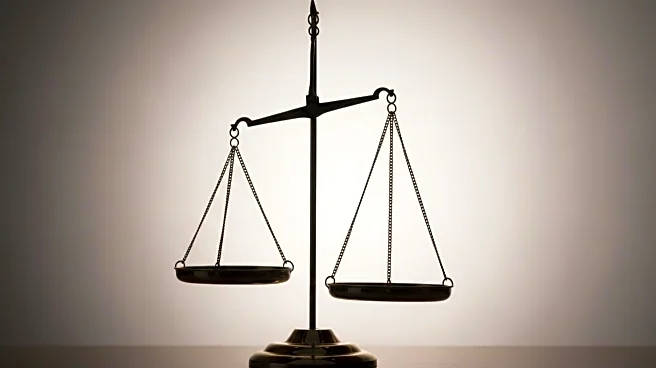What's Happening?
A recent U.S. Supreme Court ruling mandates that schools must allow parents to opt their children out of lessons containing LGBTQ+ references due to religious objections. This decision, stemming from the case Mahmoud v. Taylor, reverses previous lower court rulings and has left schools uncertain about how to implement the directive. The ruling has sparked concerns about its impact on inclusivity and the potential for broader censorship in educational materials. The California Department of Education has advised schools to consult legal experts to navigate the ruling's implications, emphasizing the need to maintain protections for LGBTQ+ youth.
Why It's Important?
The Supreme Court's decision is pivotal as it could affect the inclusivity of educational environments and the representation of diverse identities in school curricula. It raises questions about the balance between religious freedoms and anti-discrimination protections, potentially influencing how schools nationwide approach sensitive topics. The ruling may lead to increased legal scrutiny and challenges, affecting educational policies and practices. Stakeholders, including educators, parents, and advocacy groups, are concerned about the potential for this decision to lead to broader censorship and the marginalization of LGBTQ+ students.
What's Next?
Schools and educational authorities are expected to develop strategies to comply with the ruling while maintaining inclusive environments. Legal consultations and policy adjustments may be necessary to address the ruling's requirements. The decision could prompt further legal challenges and debates on the scope of opt-out policies, potentially influencing future court rulings and legislative actions. Advocacy groups may intensify efforts to protect LGBTQ+ rights in education, while parents and educators navigate the complexities of implementing the ruling.
Beyond the Headlines
The ruling may have deeper implications for educational content and the broader cultural discourse on religious freedoms versus anti-discrimination. It could influence how schools address other controversial topics, potentially leading to increased polarization in educational settings. The decision highlights the ongoing debate over the role of religion in public education and the challenges of ensuring diverse representation in curricula.









